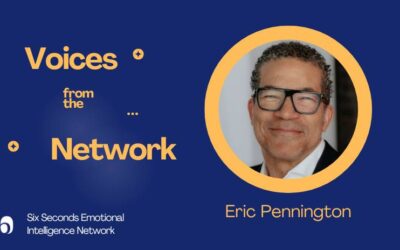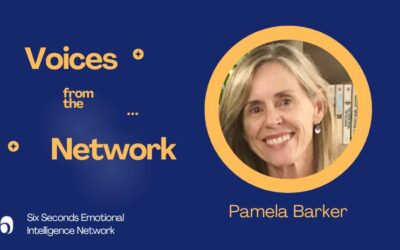I saw a look on a man’s face the other day that sent shivers down my spine. It brought my lovely partner to tears. It told a story of love, admiration, loss and pain. And it got me asking myself:
How can I inspire that look in other people’s eyes?
Am I leaving that type of legacy?
An Unexpected Garden
My partner and I were strolling through the cobblestone streets of Charleston, South Carolina. She went to university there, so she knew the city well. At one point, she led us down a narrow alley that opened up into a beautiful, green cemetery.
“This is where Alison is buried, I think,” she said, referring to her favorite college professor who had passed away a couple years ago, from cancer, at only 54.
Alison had been an amazing mentor. The type of person who comes into your life at the perfect time and helps you do and be more than you thought possible. Someone who is genuine, authentic, and passionate – who accepts you as you are and challenges you to be your best self. In this article, we shared people’s answers from all over the world about what makes leaders like these shine – and from what I’ve heard, Alison embodied those characteristics and more.
As we strolled along the cemetery, we ran into an older man with a long white ponytail. We started chatting amiably. He worked at the Unitarian Universalist church connected to the cemetery, where Alison had been an active member for years and years.
Maria asked:
“Did you know Alison Piepmeyer?”

An Unforgettable Look
He nodded, and made steady eye contact with Maria. A powerful mix of emotions poured from his eyes. Some mix of love, longing, pain, resistance – and who knows what else? Tears welled up in his eyes. He tried to speak, but realized that there weren’t any words for it. He just shook his head. By the tears in Maria’s eyes, he probably figured that she already knew what he wanted to express anyway. They both loved her, missed her, felt gratitude for her. He tried to speak once more, but still finding no words, he just nodded gently and turned around, tears now rolling down his face. He got about 5 steps and lit a cigarette, slowly strolling through the cemetery.
Alison died 5 years ago.
Before she passed, Alison ran the Women and Gender Studies department at the College of Charleston, which is where Maria met and got inspired by her. She had strong values, and stood up for the oppressed – women, people with disabilities, the LGBTQ community. But she did so in a way that empowered people, instead of simply trashing the “bad guys.” She knew the world she wanted to live in and she made sure her every day actions lined up with those values – what, at Six Seconds, we call pursuing a noble goal. She clearly touched the hearts of so many people. The line at her funeral stretched for miles. Now, 5 years after her death, she’s still leaving people speechless with gratitude for how she impacted them.
To still have such an impact on someone, wow. I still get shivers thinking about that look.
It reminds me of one of the powerful aspects of emotions: We affect one another; the neuroscience of emotional contagion confirms this felt experience. We are constantly sending and receiving emotional messages… which fuels my commitment to ask myself:
An Opportunity to Step Back
When I replay the look on that man’s face in my mind, I can’t help but think:
Is that the legacy that I am leaving in the world? The answer is sometimes yes, sometimes no.
So… what steps can I take today, this week, this year to leave that type of mark?
What habits or patterns do I need to break, or strengthen, to make sure I am making people feel deeply cared for, connected, and empowered? To leave that legacy more consistently?
At Six Seconds, the competency of pursuing noble goals is the capstone competency, the powerful why of practicing emotional intelligence that drives all the other competencies. It’s defined as connecting your daily choices with your overarching sense of purpose. That look, to me, is the result of someone following their Noble Goal. Pursuing noble goals is about having clarity about what we want, and then staying tuned in and careful in order to keep doing what we mean to do, even in the small moments. Alison was able to do that, probably not always, but enough to profoundly affect people in positive ways.
It has served as an inspiration for me to prioritize my Noble Goal. To zoom out from the craziness of life and look at that bigger picture more often. Because at the end of the day, what could be more important than influencing people to do and be more than they thought possible?
What’s new in emotional intelligence?
In the Age of ChatGPT, What Should Teachers Focus On?
AI tools like ChatGPT are transforming education, prompting a shift from knowledge transfer to fostering skills like empathy, creativity, and critical thinking. This article emphasizes the role of Emotional Intelligence in inspiring engagement and purpose, helping educators adapt to the evolving demands of an AI-driven world.
What Should Schools Prepare Us For? Educating for a Future That Inspires and Uplifts
In Italy, only 5% of workers are engaged in their jobs—an economic crisis with deep roots in the education system. What needs to change?
From Enemy to Ally: How Eric Pennington Changed His Relationship with His Own Emotions – and Found His Life’s Purpose
How emotional intelligence helped Eric Pennington transform corporate life setbacks into strengths – and find purpose in both work and life.
Emotional Intelligence at Work: In the Era of AI, What Happens to Human Skills?
Who’s winning the artificial intelligence race: machines or people? Research finds AI investment leads to disinvestment in human skills
Fortifying the Mental Health of the Entire School Community with Emotional Intelligence
Wellbeing program at St. Peter’s Primary replenishes reserves post-COVID: ‘Truly life changing for many of our staff,’ school leaders say. Read the full case study here.
Helping Others Achieve Overall Well-being and Healthy Connections: How Emotional Intelligence Guided Pamela Barker’s Career Path Growth
Pamela Barker’s journey began with healing bodies, but it was her discovery of emotional intelligence that unlocked her true purpose: helping others achieve overall well-being and healthy connections. From her days as a physical therapist to becoming a passionate EQ coach, Pamela’s story is one of transformation, resilience, and the power of connection. Her experience shows that real change starts from within.
- Pursue Noble Goals in the Six Seconds Model of EQ - July 29, 2023
- Increase Empathy in the Six Seconds Model of EQ - July 26, 2023
- Exercise Optimism - July 24, 2023






